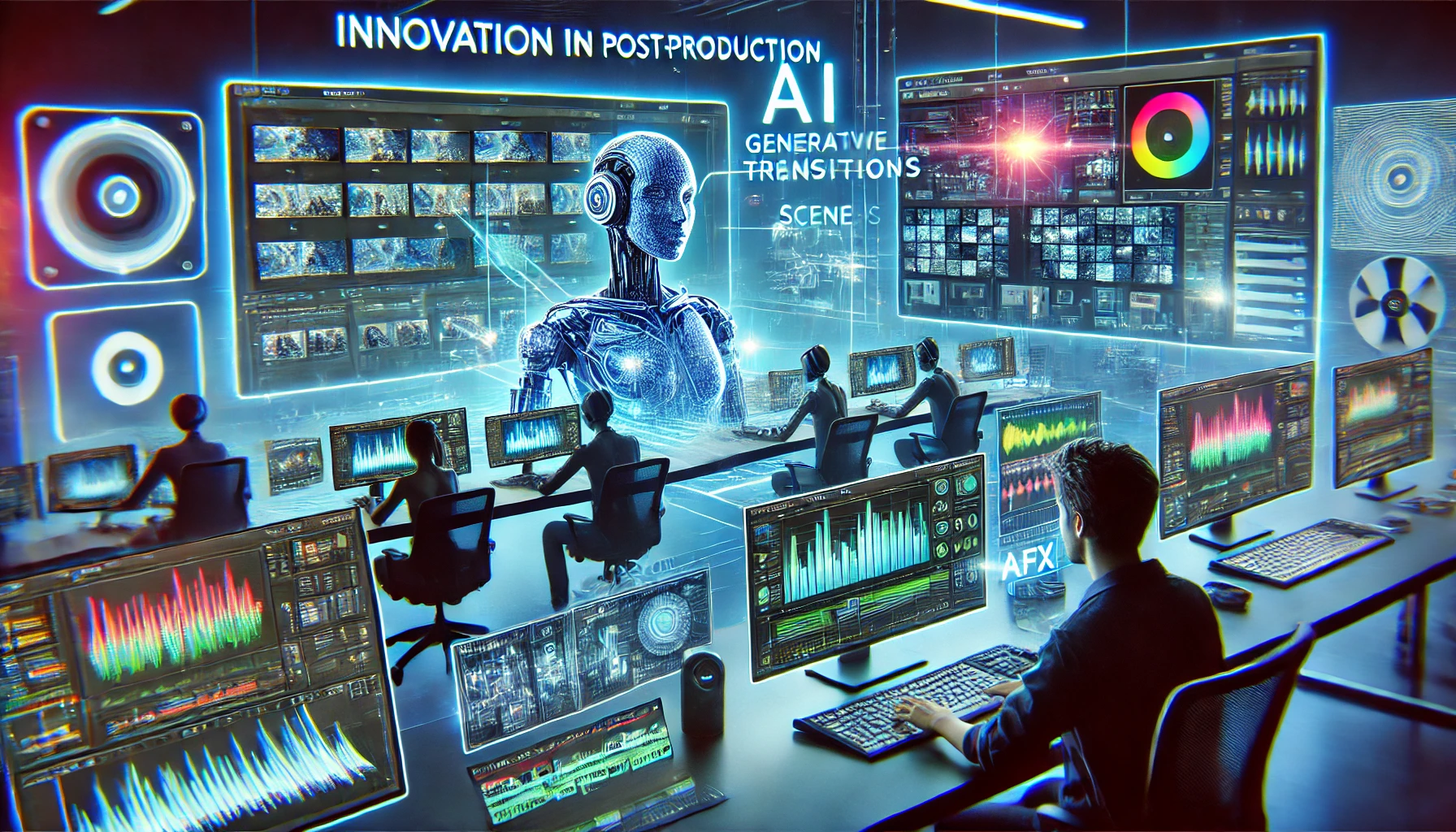The film industry is undergoing a significant transformation with the integration of generative AI tools in the post-production process. These advanced technologies are automating tasks such as scene transitions, special effects, and even editing decisions, fundamentally changing how films are created and refined. By streamlining labor-intensive aspects of editing, generative AI is helping filmmakers deliver visually stunning content faster and more efficiently than ever before.
Automating Scene Transitions and Special Effects
One of the most impressive applications of generative AI in film editing is its ability to automate scene transitions. Traditionally, editors would have to carefully craft how one scene flows into the next, ensuring a seamless viewing experience. Generative AI can analyze the footage and intelligently generate transitions that match the tone, style, and pacing of the film, saving countless hours of manual work.
In addition to transitions, AI tools are also playing a critical role in special effects (VFX). Complex visual effects that once required entire teams of VFX artists and weeks of post-production can now be created using AI algorithms. By analyzing data from previous VFX projects and learning from vast visual datasets, AI can generate highly realistic effects, from explosions to futuristic landscapes, in a fraction of the time. This not only reduces costs but also opens the door for smaller studios and independent filmmakers to create high-quality, visually striking content that would have been impossible just a few years ago.
Enhancing Creativity Through Automation
While some may fear that automation in film editing could limit creativity, the reality is quite the opposite. By automating repetitive or highly technical tasks, AI frees up time for filmmakers and editors to focus on the creative aspects of their projects. AI tools can suggest potential edits, provide creative inspiration, and offer new ways of approaching a scene, allowing filmmakers to push the boundaries of their craft.
Generative AI also enables filmmakers to experiment with different styles and formats by generating multiple variations of scenes or effects. Editors can quickly compare these versions and select the best option, resulting in a more efficient and exploratory editing process. This kind of creative assistance, combined with AI’s ability to analyze audience preferences and predict trends, offers filmmakers a new level of insight into how to craft their stories for maximum impact.
Revolutionizing the Film Industry
The integration of generative AI into film editing is not just a technological upgrade—it represents a revolution in how films are made. Major studios and independent filmmakers alike are leveraging AI tools to cut down on production times and costs, allowing for more flexibility in filmmaking schedules. With AI handling much of the heavy lifting in post-production, the industry is becoming more democratized, enabling creators with smaller budgets to produce high-quality films.
In addition, AI is being used in sound design, color grading, and even scriptwriting, further enhancing the entire production pipeline. As generative AI continues to evolve, we can expect to see it playing an even more prominent role in the future of filmmaking.
Challenges and Ethical Considerations
Despite the numerous advantages, the rise of generative AI in film editing also presents challenges. One of the primary concerns is the potential loss of jobs in post-production as AI takes over tasks traditionally handled by human editors and VFX artists. While AI tools can enhance efficiency, there is a fear that they may replace human roles altogether, especially in larger studios where cost-cutting measures are prioritized.
Additionally, the use of AI in creative decision-making raises questions about artistic authenticity. If AI-generated transitions, effects, and edits become the norm, some worry that the unique touch of individual filmmakers could be diminished. Ensuring that AI remains a tool to assist, rather than replace, human creativity will be crucial in maintaining the integrity of the filmmaking process.
The Future of AI in Film Editing
The future of generative AI in film editing is undeniably bright. As AI technology continues to improve, its capabilities will expand, enabling filmmakers to achieve even greater levels of efficiency and creativity. From fully AI-generated films to real-time editing during production, the possibilities are endless.
In the coming years, we may see more collaboration between AI systems and human editors, where AI handles technical tasks while humans retain creative control. This partnership could lead to a golden age of filmmaking, where technology and creativity blend seamlessly to produce groundbreaking films.
Generative AI is revolutionizing the film industry by automating critical post-production tasks like scene transitions and special effects. These tools are not only reducing costs and saving time but also enhancing creativity, allowing filmmakers to experiment with new styles and ideas. While challenges remain, the integration of AI in film editing is shaping the future of filmmaking, offering exciting possibilities for both seasoned professionals and up-and-coming creators.



